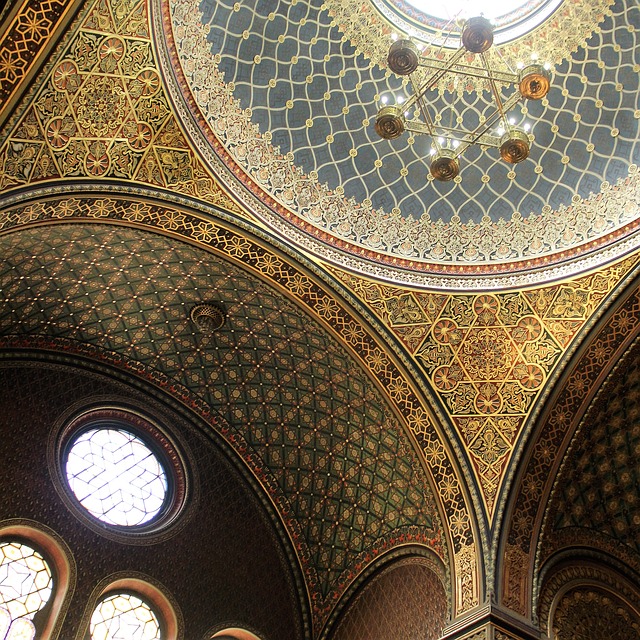
Enthusiasm, excitement, anticipation all will be on the rise in Israel today. This is the season of joyful feasts, a time of year where the faithfulness and triumph of the Lord is measured against worldly threats.
The International Christian Embassy of Jerusalem (ICEJ) will host thousands at the annual Feast of the Tabernacles (October 5-12, 2017) Great teaching and worship will encourage and uplift all who attend, and the march through Jerusalem is always spectacular. It is all exciting and biblical:
"And it shall come to pass that everyone who is left of all the nations which came against Jerusalem shall go up from year to year to worship the King, the Lord of Hosts, and to keep the Feast of Tabernacles." Zechariah chapter14, verses 16.
Jesus used the Feast of Tabernacles to make a profound statement. On the last day of the Feast, He declared rivers of living water would flow from the innermost being of those who believe in Him (John chapter 7)
The Feast of Tabernacles is also known as Sukkot. We thoroughly enjoyed sharing with our Jewish friends and neighbours in their Sukkah. These are the flimsy structures used during this celebration to recall Israel’s 40 days in the wilderness. Most will eat and sleep in the Sukkah, (sukkot, plural).
Through sukkah, the stars are visible and the residents are unprotected from wind and rain. (Although some of the sukkot in Jerusalem were quite ornate and as comfortable as a caravan). Guests are invited to share meals and joyful fellowship. (With our friends, laughter was essential!)
The forty days in the wilderness is a far-cry from the modernity of Jerusalem today. But in this appropriate hindsight the Jews are reminded of what God has done for them time after time. It also undermines how His promises will secure their future.
Threats
This precious experience defies the threats constantly aimed at the nation of Israel. Recently the new Iranian Commander-in-Chief Abdolrahim Mousavi declared Israel will cease to exist in 25 years. During our years in Jerusalem it was the Iranian President Mahmoud Ahmadinejad who wanted to ‘wipe Israel off the map.’ In the face of such threats, Israel each year moves into their sukkot and focus on the Lord.
In the sukkot they are reminded they are extremely isolated but then the past evidence reminds them of the divine protection always on hand.
In the synagogue the celebrants sing hymns while circling in a procession. The circle is about unity. They dance (more like shuffle), hand on the shoulder in front, and proceed while singing hymns. In the circle they are one. There is no leader, no class. No direction either! They are together as one force linked by choice and wherever they are going, they are going together.
The connection with the wilderness experience is most appropriate. Pharaoh was out to get them. They were frightened. They knew the strength of Egypt. They had been slaves there. Now they were vulnerable, weak, unarmed with no way of escape (Exodus chapter 14, verses 10-14)
That weakness and apparent insecurity is reproduced in the sukkah.
Sukkot provides a very practical visual tool to remind celebrants of the faithfulness they have already known, just to be in Jerusalem today.
Christians
Those who ignore the biblical feasts miss the lesson for Christians. We have the same human emotions as the Jews. The Apostle Paul acknowledged it. “We are afflicted in every way, but not crushed; perplexed, but not driven to despair; persecuted, but not forsaken, struck down, but not destroyed.” ( 2 Corinthians chapter 4, verse 9)
2000 years ago Christians in Jerusalem knew the challenge of persecution. Today we also have fear. News headlines hammer home horror and tragedy. We are made vulnerable. It is as if we live in a sukkah with elements wanting to disturb and unsettle our lives. Terror seeks to create instability even paranoia.
The Feast of Tabernacles is unique. The Gentile nations were invited to come to Jerusalem along with the Jewish people to worship the Lord at this "appointed time".
Moses was instructed to assemble all the people, that they may hear and learn to fear the Lord.’ (Deuteronomy 31 verse 12)
The word fear is the Hebrew yare’ which means to revere, to hold in reverence. The message is clear. The Lord is much more powerful than any enemy we have. We can put our trust in Him just as Israel has done through what appeared to be impossible circumstances.
Solomon dedicated the Temple during Sukkot. He called on the Lord to hear the prayers of any foreigners who came to pray (2 Chronicles chapter 6, verses 32-33)
Jesus Himself observed the Feast of Tabernacles. Appropriately on the last day of the celebration, He stood in the Temple and declared: "If anyone thirsts, let him come to Me and drink. He who believes in Me, as the Scripture has said, out of his heart will flow rivers of living water.” (John chapter 7, verses 37-38) Wonderful words that bring to mind ‘with joy shall you draw water from the wells of salvation’ (Isaiah chapter 12, verse 3) Symbolically Moroccan Jews to this day pour water on each other at Sukkot.
When the people sing their sacred songs they worship with chants from Psalms 113 to 118 referred to as Hallel , meaning praise. These psalms are recited verbatim as an act of thanksgiving. Very appropriate: “I love the LORD, because he has heard my voice and my pleas for mercy. Because he inclined his ear to me, therefore I will call on him as long as I live.” (Psalm chapter 116, verses 1,2)

Ron Ross is a Middle East consultant for United Christian Broadcasters (Vision FM). Previously he was radio news editor for Bridges for Peace in Jerusalem, Israel.
His career started at WINTV (Email: ronandyvonne@mac.com)
Ron Ross previous articles may be viewed at http://www.pressserviceinternational.org/ron-ross.html